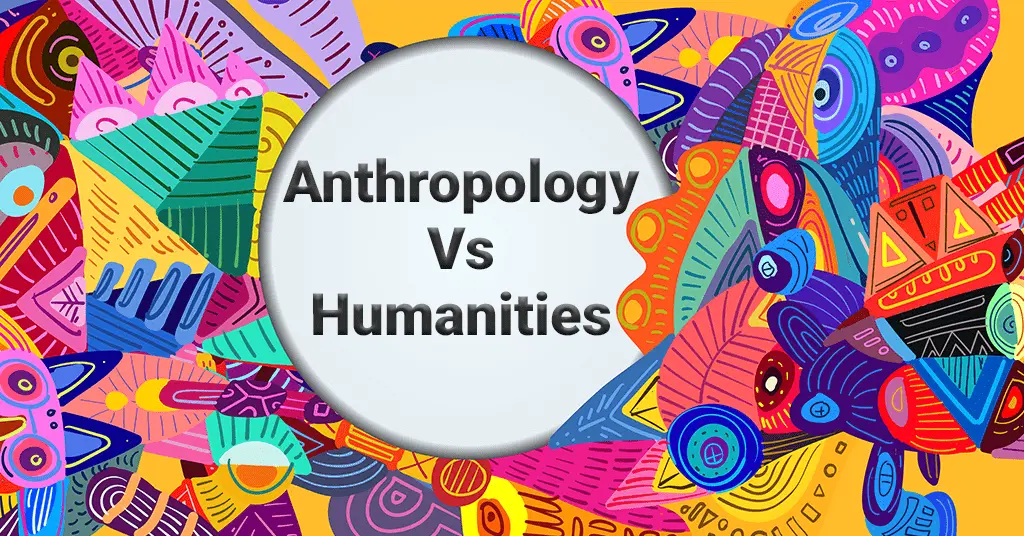AI Answer Evaluation Platform Live Now. Try Free Answer Evaluation Now
Relationship between Anthropology and Humanities
Anthropology and humanities are two fields of study that often overlap, but also have distinct differences. Both disciplines focus on understanding human behavior and culture, but they approach this subject from different perspectives. In this blog post, we will explore the similarities and differences between anthropology and humanities, and what sets each field apart.

Anthropology is a social science that studies human societies, cultures, and development. It examines all aspects of human life including social, cultural, biological, and linguistic. Anthropologists use a variety of methods including ethnography, which is a method of research that involves living among a group of people and observing their daily lives, customs, and beliefs. They also use archaeology, which is the study of human history and prehistory through the excavation of artifacts and ruins.
On the other hand, humanities is an interdisciplinary field that encompasses a wide range of disciplines including history, literature, philosophy, and art. The focus of humanities is on the human experience, and it aims to understand human behavior, culture, and society through the examination of literature, art, and other cultural artifacts.
Differences between Anthropology and Humanities
- One of the main differences between anthropology and humanities is the way in which they approach the study of human culture and society. Anthropologists tend to use a more scientific approach, relying on fieldwork, observation, and quantitative data to understand human behavior and culture. Humanities, on the other hand, tends to use a more interpretive approach, analyzing literary and artistic works to understand the human experience.
- Another key difference between anthropology and humanities is the scope of their studies. Anthropologists tend to focus on specific cultures and societies, often studying them in-depth over a long period of time. Humanities, on the other hand, tend to have a broader scope, covering a wide range of cultures and societies across different time periods.
- Despite these differences, anthropology and humanities also have a lot in common. Both fields aim to understand human behavior and culture, and they both use a variety of methods to do so. Both anthropology and humanities also rely heavily on critical thinking and analysis, and both fields are important for understanding the human experience.
Similarities between Anthropology and Humanities
- Anthropology and humanities are both academic disciplines that study the human experience and human culture, but they have different methods and approaches.
- Anthropology and humanities have different goals, as well. Anthropologists aim to understand human societies and cultures in their full complexity and diversity, and to create generalizations that can be applied to other cultures. Humanities scholars, on the other hand, aim to understand the individual cultural artifacts and texts they study.
- Anthropology and humanities also have different audiences. Anthropology is primarily intended for academic audiences, and its findings are often used by other social scientists, policymakers, and development practitioners. Humanities, on the other hand, is intended for a broader audience, and its findings are often used by educators, artists, and general audiences interested in the human experience.
| Aspect | Anthropology | Humanities |
|---|---|---|
| Approach | Scientific approach (fieldwork, observation, and quantitative data) | Interpretive approach (analysis of literary and artistic works) |
| Scope | Focuses on specific cultures and societies, often studying them in-depth over a long period of time | Broader scope, covering a wide range of cultures and societies across different time periods |
| Goals | Understand human societies and cultures in their full complexity and diversity, create generalizations applicable to other cultures | Understand individual cultural artifacts and texts |
| Audience | Primarily academic audiences, other social scientists, policymakers, and development practitioners | Broader audience, including educators, artists, and general audiences interested in the human experience |
| Similarities | – Both study human experience and culture – Both use critical thinking and analysis – Both fields are important for understanding the human experience | – Both study human experience and culture – Both use critical thinking and analysis – Both fields are important for understanding the human experience |
Summing Up
In conclusion, anthropology and humanities are two fields of study that have distinct differences, but also have a lot in common. Both disciplines focus on understanding human behavior and culture, but they approach this subject from different perspectives. Anthropology is a social science that examines human behavior and culture from a holistic perspective, while humanities is an interdisciplinary field that encompasses a wide range of disciplines and aims to understand human behavior, culture, and society through the examination of literature, art, and other cultural artifacts. Understanding the differences and similarities between these two fields can help us to better understand the human experience.



